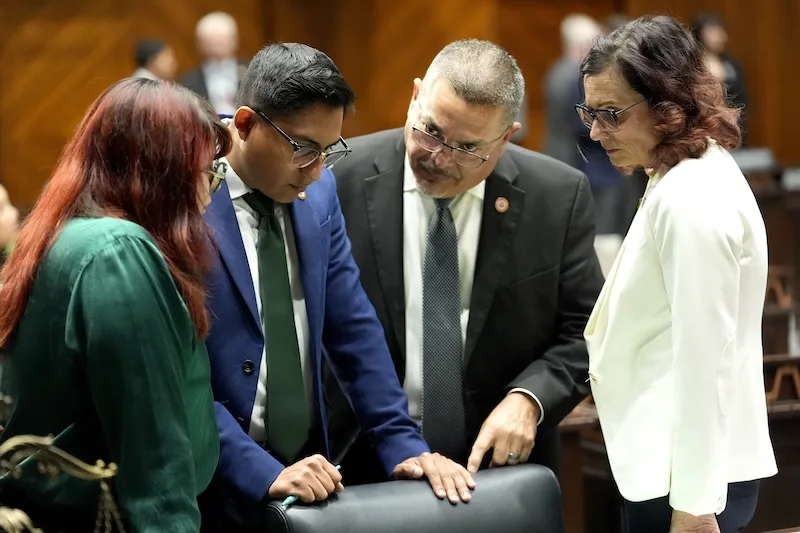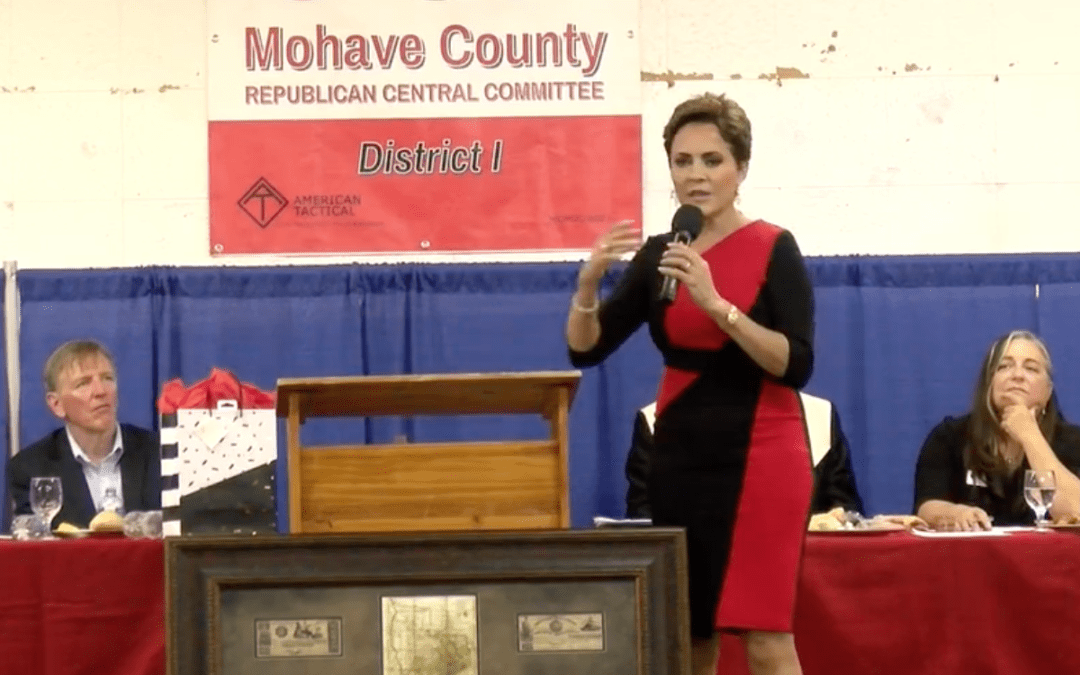
Image via Shutterstock
More court battles are expected over whether Arizona’s earlier, more complete abortion ban is in effect and whether the state’s less stringent law can take effect in September.
The US Supreme Court on June 24 overturned Roe v. Wade, the 1973 decision that had provided a constitutional right to abortion. The ruling was expected to lead to abortion bans in roughly half the states.
Some Republican-led states banned or severely limited abortion immediately after the Dobbs v. Jackson decision, while other restrictions will take effect later.
In anticipation of the decision, several states led by Democrats took steps to protect abortion access. The decision also set up the potential for legal fights between the states over whether providers and those who help women obtain abortions can be sued or prosecuted.
What’s in Effect
Arizona law before Dobbs barred abortions after about 22 weeks. Clinics like Planned Parenthood are currently not offering abortion services in Arizona. A new law that prevents abortions after 15 weeks of pregnancy was passed earlier this year and will go into effect Sept. 24. This new ban only allows abortions to be performed after 15 weeks in cases of medical emergency, with no exceptions for rape or incest.
Political Control
The GOP controls both chambers of the state Legislature. Republican Gov. Doug Ducey must leave office in January because of term limits. Kari Lake, the Republican nominated to replace Ducey, has come out in support of a pre-statehood ban on abortion that would invite government intervention in women’s medical visits in order to prevent abortions in the state, and would even criminalize doctors who perform abortions, with no exceptions for rape or incest.
The 158-year-old ban on abortion is widely unpopular in Arizona, according to a new Courier Newsroom/Data for Progress poll. Nearly 70% of Arizonans oppose the ban, including 72% of women and 74% of Latino voters. More than 60% of voters said they would reconsider voting for a lawmaker or candidate that supports restrictive abortion legislation.
Lake’s Democratic opponent, Arizona Secretary of State Katie Hobbs, has campaigned on a platform of protection for women’s privacy and access to abortions.
RELATED: Blue States Prepare for Influx of Patients Seeking Abortion Care
“As a public official, I’ve tirelessly fought to protect our right to reproductive health care for more than a decade,” Hobbs said. “The decision to have a child should rest solely between a woman and her doctor, not the government or politicians.”
Should Republicans maintain control of the state Legislature, legislation to outlaw abortion is all but guaranteed. Before the Legislature adjourned earlier this year, legislators had already begun arguing that the state’s 15-week ban on abortion was not enough, and that an absolute ban on abortion was necessary, with no exceptions for rape or incest.
What’s Happened Since Roe Was Overturned
Legal uncertainty about two different abortion laws prompted clinics to stop providing the procedure. After the Dobbs ruling, the US Supreme Court began allowing the state to enforce a 2021 ban on abortions done solely because the fetus has a genetic abnormality such as Down syndrome. But a federal judge in Phoenix in July blocked enforcement of another part of that so-called “personhood” law that grants legal rights to fertilized eggs or fetuses. Abortion rights supporters said that could have been used to charge providers with assault, child abuse, or other crimes for otherwise-legal abortions.
Republican Arizona Attorney General Mark Brnovich has asked a judge to lift a decades-old order that blocks enforcement of an abortion ban passed before Arizona was a state. The new, less stringent law banning abortions after 15 weeks of pregnancy is scheduled to take effect Sept. 24.
RELATED: Arizona Republicans Want to Label Abortion-Rights Groups as Terrorists
The Republican nominee to replace Brnovich, Abe Hamadeh, has vowed to enforce Arizona’s strictest abortion bans to the fullest extent of the law. Democratic opponent Kris Mayes has committed to protecting Arizonans’ right to privacy found in the state constitution.
“I believe abortion should be legal and safe, and that women should have both privacy and bodily autonomy,” said Mayes. “The government does not belong in these decisions that should remain between women and our healthcare providers.”
What’s Next
More court battles are expected over whether the earlier, more complete ban is in effect and whether Arizona’s 15-week law can take effect this fall. From there, how those laws will be enforced—and whether or not new, stricter abortion laws will be introduced—depends on the upcoming elections in November.
The Associated Press contributed to this report.
Looking for the latest Arizona news? Sign up for our FREE daily newsletter.
Politics

Democrats clear path to bring proposed repeal of Arizona’s near-total abortion ban to a vote
Democrats in the Arizona Senate cleared a path to bring a proposed repeal of the state's near-total ban on abortions to a vote after the state's...

It’s official: Your boss has to give you time off to recover from childbirth or get an abortion
Originally published by The 19th In what could be a groundbreaking shift in American workplaces, most employees across the country will now have...
Local News

Kari Lake calls on Arizona county sheriffs to enforce 1864 abortion ban
Republican candidate for US Senate Kari Lake on Saturday seemed to solidify her support for Arizona’s total abortion ban and called on county...

Where to buy farm-fresh eggs in Tucson
Once you’ve tasted farm-fresh eggs, it’s hard to go back to the store-bought variety. Not only do farm-fresh eggs taste better and have...





